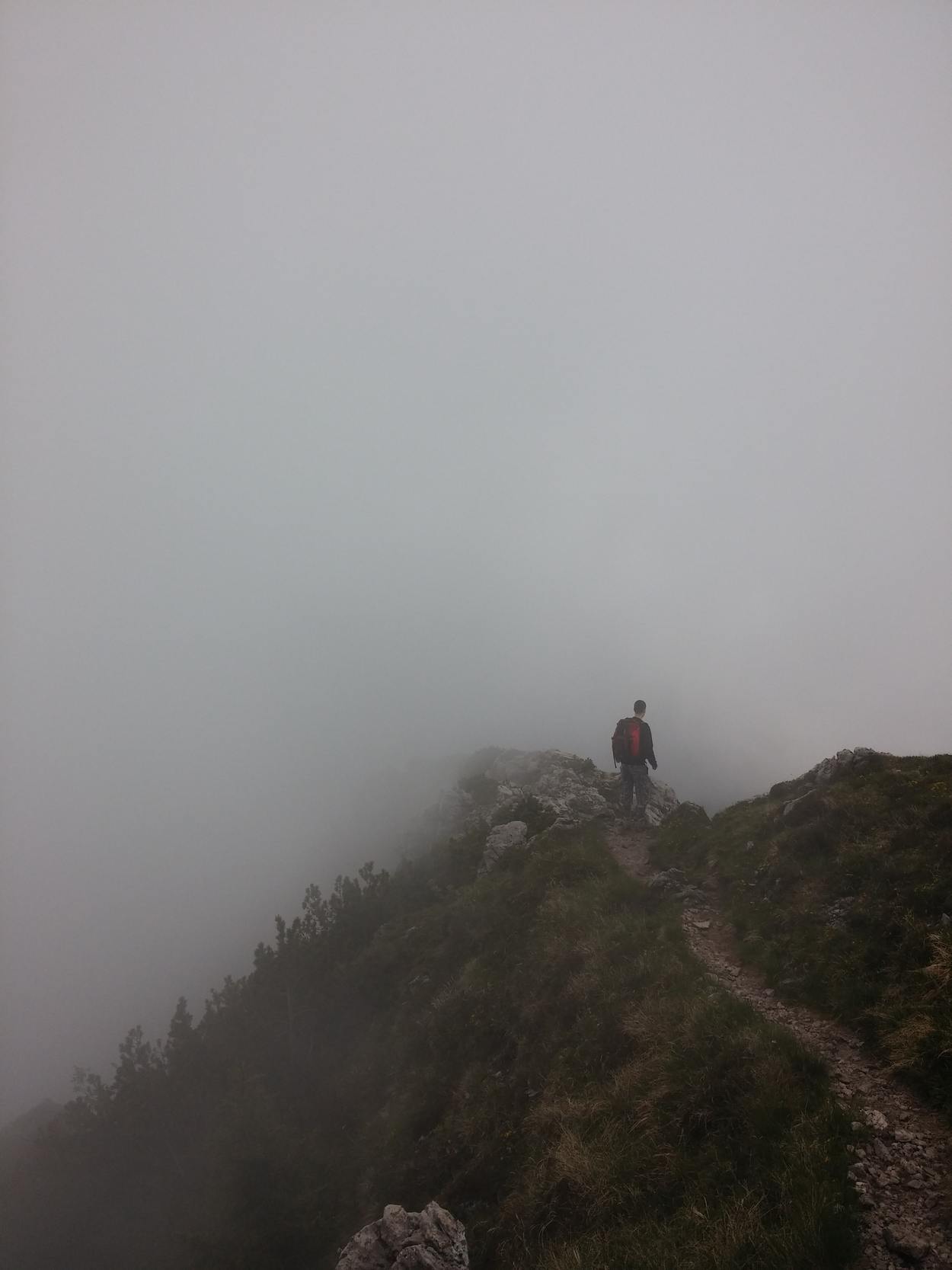
Tolerating and embracing uncertainty

Photo from unsplash.
In times of rapid change and conflict, we long for certainty. We want to predict and plan for the future and clearly see the path forward. We need something to believe in that will carry us through tough and confusing times when we feel out of control and fearful.
It’s natural to yearn for certainty, but we are better off if we can learn to embrace it. Tolerating uncertainty is good for our thinking as well as our mental health.
Tolerating uncertainty improves our thinking
If we cannot tolerate uncertainty, we risk being manipulated by tyrants and charmers who reassure us that they know all the answers. It’s easier to just follow someone who appears to be extremely confident than to ask questions, listen to various viewpoints, and make decisions on our own that we may be unsure of. We can calm ourselves, for a short time at least, by picking a person or a news source that tells us what we’re comfortable hearing. Information that challenges our chosen beliefs can then be ignored or labeled fake news. We’ve found a story and we’re sticking to it.
Tolerating uncertainty, however, guides us to good thinking and is an important characteristic of a critical thinker (someone who analyses and evaluates an issue before making a judgment). When I first heard that I thought, “Tolerate uncertainty. That’s strange advice.” But, with further reflection, the wisdom became clear.
When we’re certain we’re right, and totally confident that we know what we’re doing, our minds close. We shut down our curiosity and our willingness to listen to and examine new ideas and creative solutions.
How many people have been hurt because some group, or person, was certain their political system, their religion, their territorial claims, their way of doing things was right and the opposing group’s wrong? “Of course God is on my side and supportive of the pain and ruin I plan to cause proving it!” Off to battle we go, leaving a trail of devastation and destruction instead of renewal and restoration.
Admitting we’re uncertain can be tough because it may be seen as weak instead of wise. Once we say we’re certain about something, we may refuse to change our minds because, unfortunately, we often would rather be right than know the truth.
Embracing uncertainty is good for our mental health

Accepting the uncertainties of life is good for our thinking and also for our mental health. Therapists now call our tendency to react negatively to uncertain situations and events “Intolerance of Uncertainty” or IU. Excessive stress and fear, plus uncontrollable worry can result when we doubt and feel indecisive. We naturally like norms we can count on and people we can trust.
How can we lessen IU and create more peace of mind? First, we must be comfortable with uncertainty and accept that there are many things in our world we personally can’t control – like nature, family, friends, politicians, viruses, etc. Acknowledging that we are not in control of the grand majority of what goes on in our world can be scary, but when we embrace uncertainty instead of fight it, we lay the foundation for the next step, which is building up our ability to cope with uncertainty.
Embracing uncertainty helps us tone down the fearful part of our brain (the amygdala) that helps us quickly remove our fingers from a hot oven burner, but that also leads us to saying and doing things we regret when we’ve had time to calm down and think things through. We can keep our fearful instincts in check by avoiding excessive negative information and angry voices whose purpose is to manipulate us. Choosing to focus on constructive, calm voices, beneficial events, and productive problem-solving efforts allows our higher order, logical brain areas to guide us. It prevents paranoia and unfounded suspicions from surreptitiously weaving their nasty web into our thinking.
When we relax and become more at ease with life’s inherent uncertainty, our health improves. Our life’s journey becomes more peaceful and enjoyable when we let go of the idea that life should be a certain way, and instead just let it be. We quit fighting against the waves of life and learn to ride with them.
When my world seems chaotic and confusing, I work on calming my fears through time in nature, music, and reading. Charles De Montesquieu said, “I have never known any distress that an hour’s reading did not relieve.” I pray, believe in love and kindness, turn my attention to helping others, and commit to conquering my fears instead of giving into them.
I don’t think IU is a mental disorder. I think it’s simply our human condition. It’s hard to be uncertain, but we can improve on how well we deal with the fact that there is no fail-safe recipe to follow in creating a happy life.
I’m inspired by the ponderosa pines of the Black Hills. They have learned to thrive under very uncertain weather conditions. They encounter vicious winds, snow that bends and breaks their branches, droughts, fires, and a vast array of temperatures. I see them curve like acrobats, flourish in rocks and sheer cliffs, and rise up after forest fires. The ponderosa pines (like those pictured above in Grant and Bonnie Sinclair’s website Our Wander-filled Life) remind me that although we can’t force life to follow our will, we can resiliently adapt to life, appreciate its beauty, and embrace its uncertainty.
Christy Heacock, PhD, is a research psychologist, educator, and author of “Being Human Is Hard: Choose Forgiveness.” She grew up in Redfield, SD, and has lived in Rapid City the last 38 years with her husband Roger. Contact her at christyheacock@gmail.com or through her website: chooseforgiveness.com.